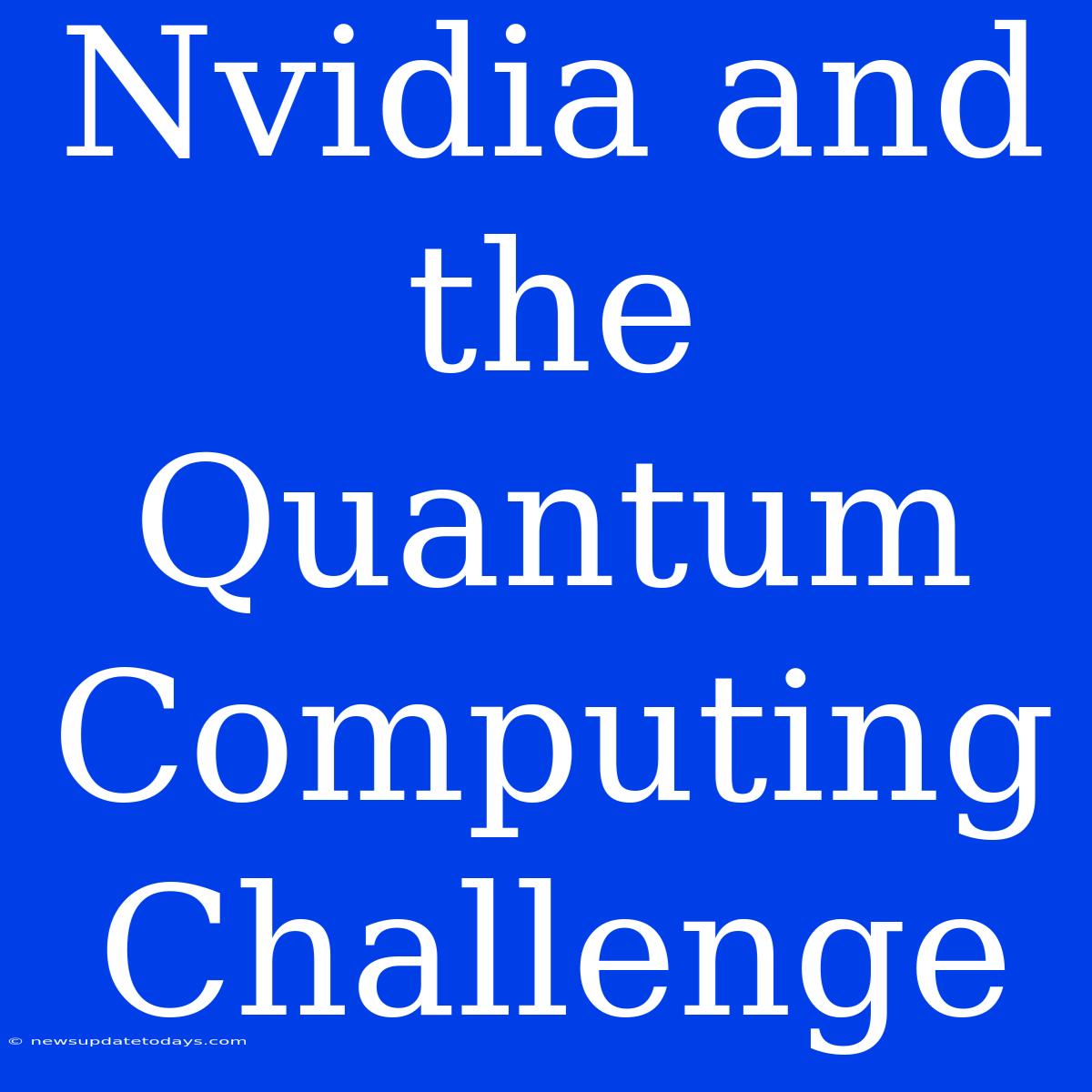Nvidia and the Quantum Computing Challenge: A Race to the Future
Nvidia, a titan in the world of graphics processing units (GPUs) and artificial intelligence (AI), is unexpectedly finding itself deeply involved in the burgeoning field of quantum computing. While not a direct competitor building quantum computers, Nvidia's existing technologies and expertise place it in a unique position to significantly influence and shape the future of this revolutionary technology. This article explores Nvidia's role in the quantum computing challenge, highlighting its contributions and potential future impact.
Nvidia's Current Contributions to Quantum Computing
Nvidia's involvement isn't about building qubits; instead, it's about providing the crucial classical computing infrastructure needed to support and control quantum computers. This involves several key areas:
-
High-Performance Computing (HPC): Quantum computers, even the most advanced, currently require significant classical computing power for tasks like simulation, algorithm development, and data processing. Nvidia's powerful GPUs excel in HPC, offering the necessary computational muscle to manage the complexities of quantum computation. This allows researchers to simulate quantum algorithms and systems, paving the way for future development.
-
AI Acceleration: Machine learning and AI are vital in quantum computing for tasks such as error correction, algorithm optimization, and qubit control. Nvidia's CUDA platform and deep learning frameworks (like TensorRT) provide accelerated computing for these AI applications, significantly speeding up the development process.
-
Software and SDKs: Nvidia is developing software tools and SDKs specifically tailored to facilitate quantum computing research. These tools help bridge the gap between classical and quantum systems, providing a more user-friendly environment for researchers and developers. This simplifies the process of running and analyzing quantum computations.
-
Quantum-Classical Hybrid Systems: Nvidia envisions a future where classical and quantum computers work together synergistically. Their technology plays a key role in building the infrastructure that supports these hybrid systems, allowing researchers to leverage the strengths of both approaches to solve complex problems.
The Challenges and Opportunities
While Nvidia's contributions are significant, the path to widespread quantum computing adoption is fraught with challenges:
-
Scalability: Building and maintaining large-scale quantum computers is exceptionally difficult. Nvidia's role in classical computing infrastructure needs to scale alongside the growing complexity of quantum systems.
-
Error Correction: Quantum computers are inherently prone to errors. Developing robust error correction techniques is crucial, and Nvidia's AI acceleration capabilities can play a key role in optimizing these techniques.
-
Algorithm Development: Creating efficient quantum algorithms for specific problems is an ongoing challenge. Nvidia's HPC resources aid in exploring and refining these algorithms.
Despite these challenges, the potential rewards are immense. Quantum computing holds the promise of revolutionizing various fields, including medicine, materials science, and finance. Nvidia's active role positions it to capitalize on this potential, benefiting from the growth of the quantum computing industry.
Conclusion: Nvidia's Strategic Position
Nvidia isn't building the quantum computers themselves, but they are building the vital infrastructure that makes them function. Their investment in HPC, AI, and software development positions them as a key player in the race towards practical quantum computing. Their contributions are crucial, not just for accelerating research, but also for making quantum computing accessible and usable to a wider community of researchers and developers. The future of quantum computing will be a collaborative effort, and Nvidia is undeniably a significant part of that future.

